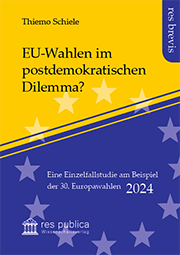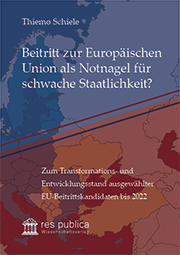 Autor
Autor
Beschreibung
With growing tendency towards political globalisation, the EU Member States are not only confronted with more interconnectivity between the States themselves, but also with States outside of the EU,
which leads to new transnational challenges. Regarding the uncontrolled migration towards the EU, the Member States decided to establish the Agency Frontex, which should help them to better control migration at the land and sea borders. Since the establishment of Frontex, the Agency experienced an immense increase in monetary and human capital. At the same time Frontex was accused of several human rights violations and the increasing securitization and militarization of the borders. This progression resonated especially bad with Human-Rights- and Pro-Migrants-Groups.
This paper will analyse the historical background and development of the Agency and examine the methods, which it applies in order to conduct and coordinate the joint operations. The focus will also lie on the linguistic framework, which is established through the methods used by Frontex. Further it will be analysed, to which degree the Agency and the Member States are accountable for the human rights violations, which occurred during the joint operations and how exactly the increasing securitization and militarization of the borders is compatible with the growing humanitarian approach within the Agency.
Weitere Informationen |
|
| Aus der Reihe: | res brevis – Wissenschaft im Fokus |
| Reihennummer: | Bd. 4 |
| Seitenzahl: | 64 |
| Sprache: | Englisch |
| Abbildung (farbig): | 1 |
Erhältlich als
» Informationsblatt & Bestellschein als PDF

 />
/>

 +
+ 









